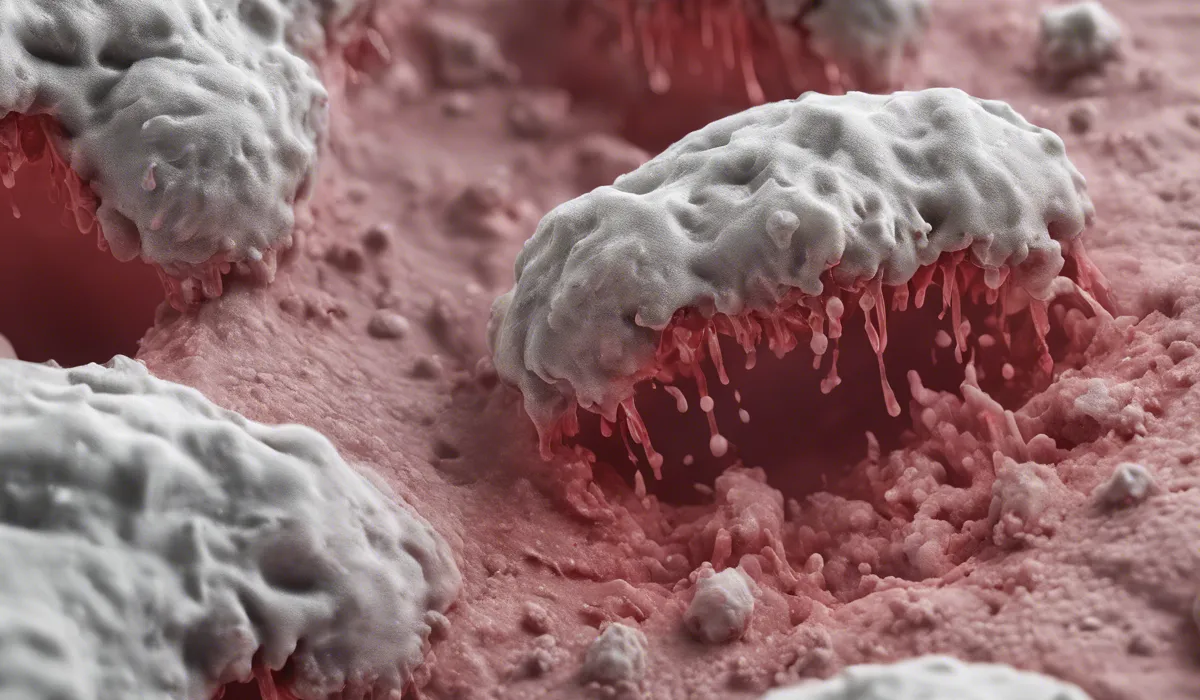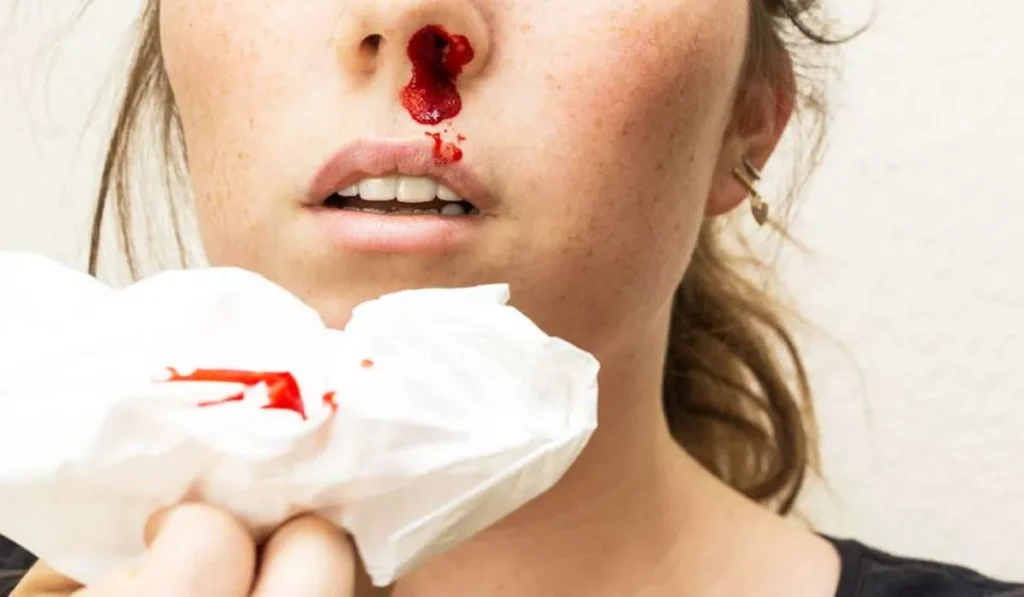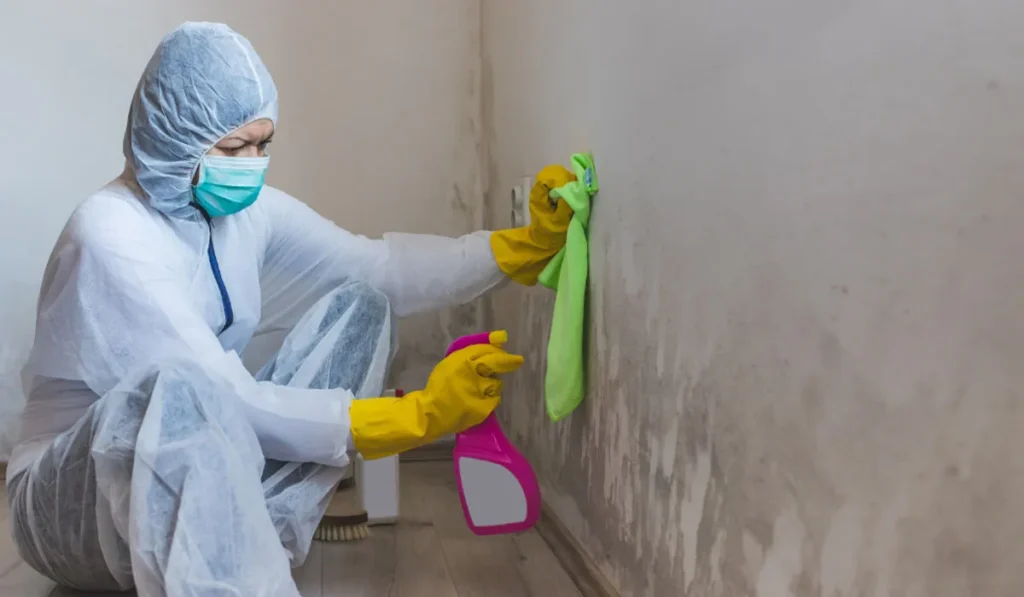Yes, mold can cause nosebleeds. Exposure to certain types of mold spores may irritate the nasal passages, leading to bleeding. Individuals with mold allergies or sensitivities are particularly at risk for this reaction.
Understanding Mold and Its Effects on Health

What Is Mold?
Mold is a type of fungus that can grow almost anywhere there is moisture and organic material. It reproduces by releasing tiny, lightweight spores that travel through the air.
Molds come in various colors and shapes, and while they are a natural part of the environment, they can become a problem when they grow inside our homes.
Common Household Molds
In our homes, we might encounter several types of mold. Some common household molds include Cladosporium, Penicillium, Aspergillus, and the infamous black mold, Stachybotrys chartarum.
Each type thrives in different conditions, but all need moisture to grow.
Health Problems from Mold
Exposure to mold can cause various health problems. Some people might experience allergic reactions, asthma attacks, or respiratory issues.
Symptoms can include coughing, wheezing, throat irritation, and in some cases, skin rashes or eye irritation.
Mold and the Respiratory System
Mold can have a significant impact on the respiratory system. When we breathe in mold spores, our body reacts to them as foreign invaders.
For those with mold sensitivities or compromised immune systems, this can lead to inflammation in the airways, making breathing difficult.
Link Between Mold Exposure and Nosebleeds

Mold as an Irritant
Mold can produce irritants that affect the delicate lining of our nasal passages. When these irritants come into contact with the mucous membranes in the nose, they can cause discomfort and even bleeding.
Inflammation and Irritation in the Nose
Continuous exposure to mold spores may lead to the inflammation of the nasal passages. With time, this inflammation can become chronic, leading to more frequent nosebleeds as the blood vessels in the nose become more prone to rupture.
Medical Insights on Mold and Nosebleeds
Doctors recognize that mold exposure can cause nosebleeds, especially in individuals who have a mold allergy.
The repeated irritation and inflammation can weaken the nasal membranes, making them more susceptible to bleeding.
Risk Factors for Mold-Induced Nosebleeds
Anyone can be affected by mold-induced nosebleeds, but those with existing allergies, respiratory conditions, or weakened immune systems are at a higher risk.
Children and the elderly may also be more vulnerable to the effects of mold exposure.
Preventing and Addressing Mold-Related Health Issues

Identifying Mold in Your Home
It is crucial to be vigilant about mold growth in your home. Look for visible signs of mold, such as black or green patches on walls, ceilings, or in bathrooms.
A musty smell is another indicator that you might have mold in your home.
Eliminating Mold Sources
Once you identify mold, it’s essential to remove it safely. This might involve cleaning small areas with mold-killing solutions or hiring professionals for larger infestations.
Prevent mold from coming back by fixing leaks, controlling humidity, and ensuring good ventilation.
Reducing Health Risks
To lower the health risks associated with mold, keep indoor humidity levels below 50%, use air purifiers with HEPA filters, and clean and dry any damp areas within 24-48 hours to prevent mold growth.
When to Seek Medical Advice?
If you or your family members experience persistent symptoms like nosebleeds, it is important to seek medical advice.
A healthcare provider can help determine if mold is the cause of your symptoms and recommend appropriate treatment and preventive measures.
Maintaining a Mold-Free Environment
Maintaining a clean, dry, and well-ventilated home is key to preventing mold growth. Regularly inspect your home for signs of moisture and mold, and take immediate action to address any issues you find.
Using dehumidifiers and maintaining your HVAC system can also help control mold growth.
Professional Mold Remediation
If mold is a recurring problem in your home, consider professional mold remediation.
Experts can identify the root cause of the problem, safely remove the mold, and suggest ways to prevent future growth, ensuring a healthier living environment for you and your family.
Educating Yourself and Your Family
Educate yourself and your family about the dangers of mold and the importance of a mold-free home.
Understanding the health risks and knowing how to spot the signs of mold can empower everyone in your household to contribute to a safer, healthier living space.
FAQs About Mold and Nosebleeds
Can exposure to mold cause nosebleeds?
Yes, exposure to mold can cause nosebleeds due to irritation of the nasal passages from mold spores.
Are certain individuals more at risk for nosebleeds caused by mold?
Yes, individuals with mold allergies or sensitivities are more at risk for experiencing nosebleeds when exposed to mold.
What types of mold are known to cause nosebleeds?
While any mold can potentially cause irritation, some types like black mold (Stachybotrys chartarum) are more commonly associated with health issues such as nosebleeds.
How do mold spores lead to bleeding in the nasal passages?
Mold spores can irritate and inflame the nasal lining, which may result in bleeding.
Is it possible to prevent nosebleeds caused by mold exposure?
Preventing nosebleeds from mold exposure involves controlling mold growth in your environment and seeking treatment for mold allergies or sensitivities.
Final Thoughts
Mold’s potential to cause nosebleeds is notably linked to the irritation of nasal passages by mold spores.
Individuals with allergies or heightened sensitivities to mold are particularly vulnerable to such reactions.
It’s important to be aware of the environments that can foster mold growth and the health implications associated with mold exposure.
